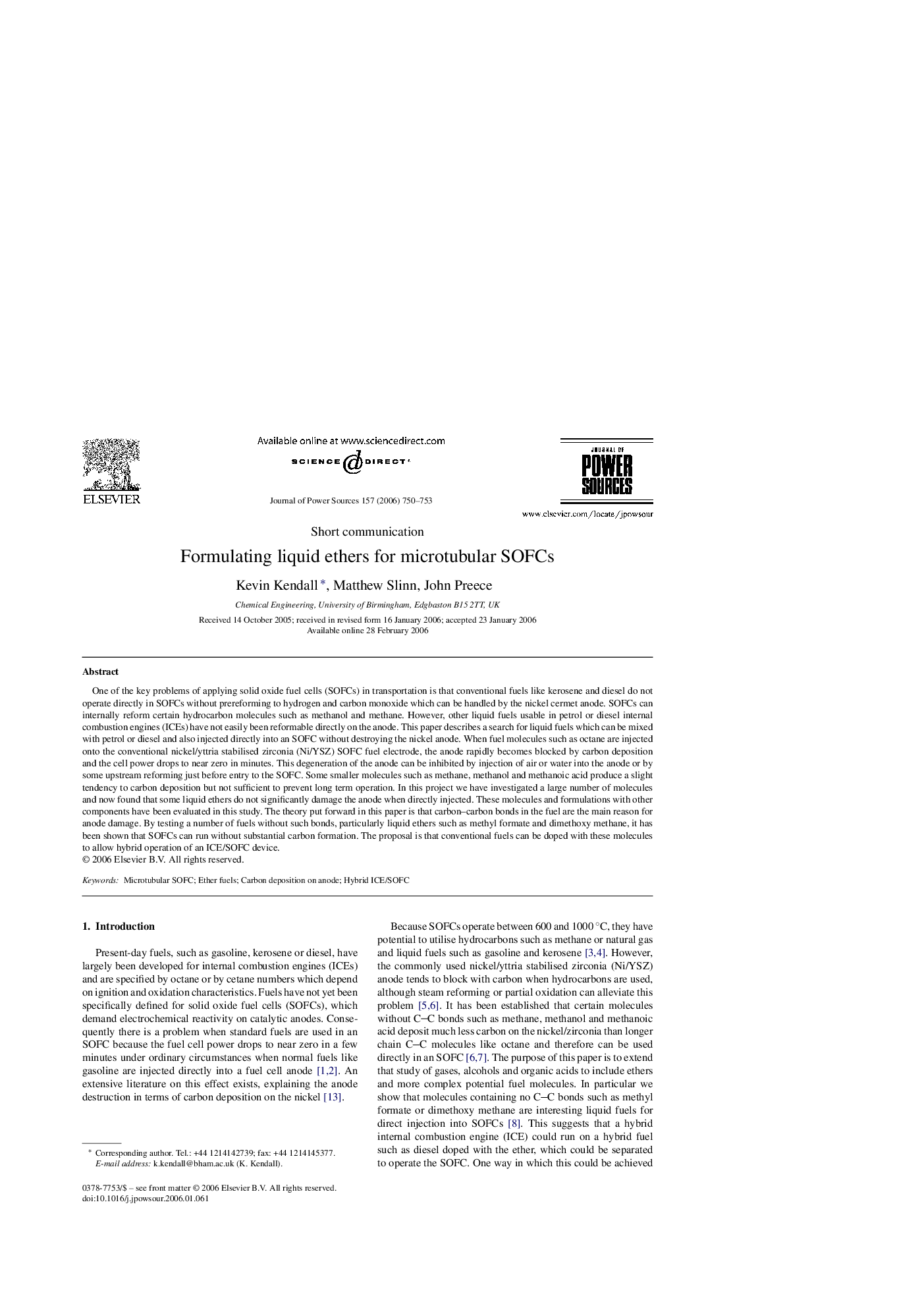| Article ID | Journal | Published Year | Pages | File Type |
|---|---|---|---|---|
| 1287758 | Journal of Power Sources | 2006 | 4 Pages |
One of the key problems of applying solid oxide fuel cells (SOFCs) in transportation is that conventional fuels like kerosene and diesel do not operate directly in SOFCs without prereforming to hydrogen and carbon monoxide which can be handled by the nickel cermet anode. SOFCs can internally reform certain hydrocarbon molecules such as methanol and methane. However, other liquid fuels usable in petrol or diesel internal combustion engines (ICEs) have not easily been reformable directly on the anode. This paper describes a search for liquid fuels which can be mixed with petrol or diesel and also injected directly into an SOFC without destroying the nickel anode. When fuel molecules such as octane are injected onto the conventional nickel/yttria stabilised zirconia (Ni/YSZ) SOFC fuel electrode, the anode rapidly becomes blocked by carbon deposition and the cell power drops to near zero in minutes. This degeneration of the anode can be inhibited by injection of air or water into the anode or by some upstream reforming just before entry to the SOFC. Some smaller molecules such as methane, methanol and methanoic acid produce a slight tendency to carbon deposition but not sufficient to prevent long term operation. In this project we have investigated a large number of molecules and now found that some liquid ethers do not significantly damage the anode when directly injected. These molecules and formulations with other components have been evaluated in this study. The theory put forward in this paper is that carbon–carbon bonds in the fuel are the main reason for anode damage. By testing a number of fuels without such bonds, particularly liquid ethers such as methyl formate and dimethoxy methane, it has been shown that SOFCs can run without substantial carbon formation. The proposal is that conventional fuels can be doped with these molecules to allow hybrid operation of an ICE/SOFC device.
